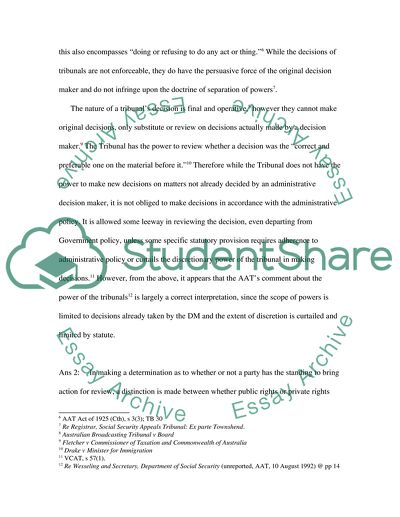Cite this document
(Reviewing Decisions in a Court Article Example | Topics and Well Written Essays - 2750 words, n.d.)
Reviewing Decisions in a Court Article Example | Topics and Well Written Essays - 2750 words. Retrieved from https://studentshare.org/law/1705026-admin-essays
Reviewing Decisions in a Court Article Example | Topics and Well Written Essays - 2750 words. Retrieved from https://studentshare.org/law/1705026-admin-essays
(Reviewing Decisions in a Court Article Example | Topics and Well Written Essays - 2750 Words)
Reviewing Decisions in a Court Article Example | Topics and Well Written Essays - 2750 Words. https://studentshare.org/law/1705026-admin-essays.
Reviewing Decisions in a Court Article Example | Topics and Well Written Essays - 2750 Words. https://studentshare.org/law/1705026-admin-essays.
“Reviewing Decisions in a Court Article Example | Topics and Well Written Essays - 2750 Words”, n.d. https://studentshare.org/law/1705026-admin-essays.


